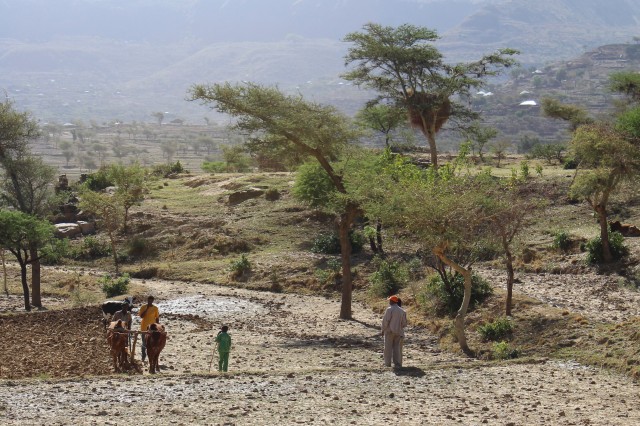
New PhD opportunity: Data synthesis and integration for improved climate impact assessment
14th January 2019
Torn between furthering your career by doing a PhD, and making a difference? You don’t need to be: “Data synthesis and integration for improved climate impact assessment” is a funded PhD co-supervised by Evidence for Development through the SCENARIO Doctoral Training Partnership.
This project has the potential to have a big influence in terms of the new science it will use, but also the application of that science. The PhD will be based at the Walker Institute at the University of Reading, and will benefit from a three-month placement within EfD.
This studentship is for entry from September 2019. Please note, the application deadline is 25 January 2019.
There are links between multiple aspects of extreme climatic events and shocks. This intricate web is not as well understood as it could or should be, especially at a time when we are witnessing increased frequency and extremity of shocks such as floods and crop failures. Often, in vulnerable populations, climatic changes however small can reach a tipping point where a small change can have a disproportionate effect. This project will look at how to build better and richer early warning systems for major climate shocks, in order to contribute to disaster risk reduction (DRR) efforts.
The objective of this project is to integrate the analysis of shock impacts across sectors (agriculture and health) and population dynamics, recognising that complex feedback systems are also highly context dependent and include social, political/institutional and economic factors. This research will explore, integrate and publish available data sets including climate, crops, health and livelihoods information. It will exploit data mining and other statistical approaches to develop techniques and algorithms with the objective of identifying the greatest vulnerabilities within and across defined populations. Exemplars will be taken from several DAC-listed countries in Africa where the supervisory team are already working together in partnership with national government, academic and NGO stakeholders. The project will also involve field work, and a willingness to travel to developing countries is essential. This field work will help increase understanding on how the data is gathered and ensure there are systems in place to gather the data needed for your own research.
Applicants should hold a minimum of a UK honours degree at 2.1 level, or equivalent, in a relevant discipline such as meteorology, physics, mathematics, geography or environmental science. A strong background in numerical/statistical techniques and the application of those techniques in big data and database programming is essential. Knowledge of data modelling and data integration would be advantageous. This PhD will involve travel in developing countries. For information on eligibility requirements see here.
Lead Supervisor: Professor Rosalind Cornforth – Director, Walker Institute – Specialist interest in climate variability in Africa
Co Supervisors:
Dr Elena Tarnavsky – Senior Research Fellow – NCEO Impact Team;
Dr Lindsay Todman – Doctoral Supervisor with specialist interest in mathematical methods to predict complex dynamics in agricultural systems;
Associate Professor Celia Petty – Co-founder and Director of Operations at Evidence for Development;
Dai Clegg – Director of Evidence for Development’s open-source software projects and big data specialist
For more information about this opportunity, and to apply, please see the advert on the SCENARIO website:
http://www.met.reading.ac.uk/nercdtp/home/available/desc/entry2019/SC2019_18_CORNFORTH_advert.pdf
Comments
No comments yet.
Post a comment